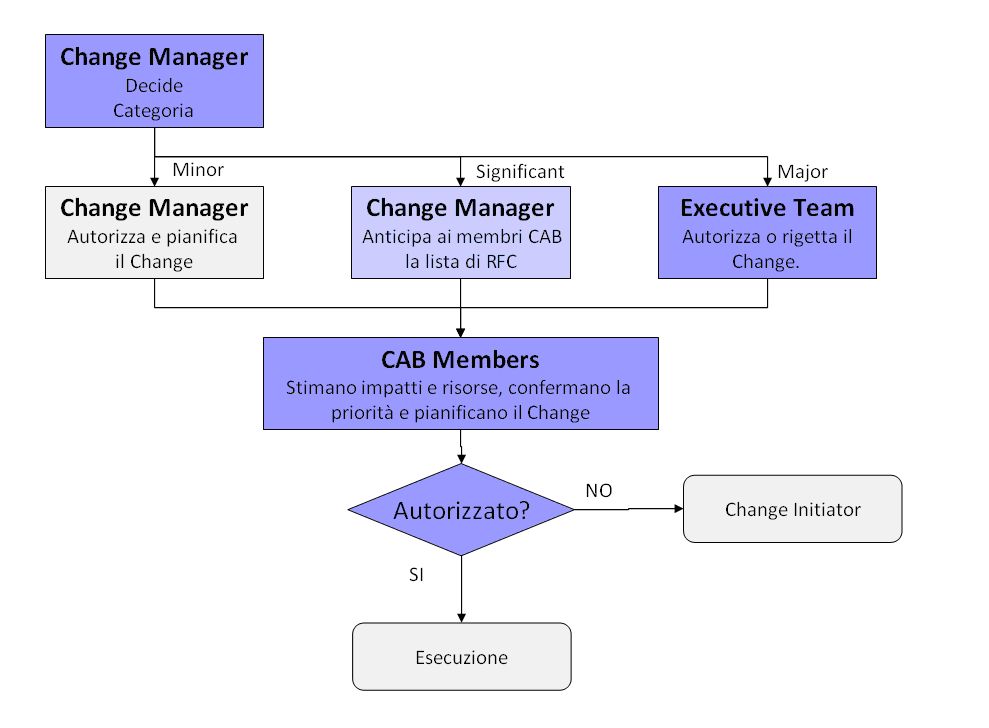Difference Between Change Management and Project Management
Managing processes and people in an organization can be an uphill task. This can also affect organizational growth, customer satisfaction and the ease of running an entity, necessitating the need for management structures. Change management and project management are some of the common disciplines when it comes to setting execution strategies. Although they are vital in the implementation and success of projects and work hand in hand, they are different in various ways.

What is Change Management?
This is the use of people, tools and processes to effectively help companies manage changes that occur due to project initiatives as well as other factors that can affect the running of the business or the outcome of an initiative.
Among types of organizational change include:
- Developmental change- This is a change that optimizes and improves on already established strategies, processes and procedures.
- Transitional change- To solve problems, organizations may be forced to adopt transitional change. This moves a firm from its old state to a new one such as through acquisitions, automation and mergers.
- Transformational change- This is a change that alters the core values, culture and operations within an organization.
Although change management doesn’t entail formalized milestones or tasks, it has become a vital process in organizations. Irrespective of the set goals, change management processes may vary with organizations.
Change managers are vital in the process as they manage, guide, document, communicate and implement strategies to assist employees, management and other stakeholders during transitions. They also aid in reducing resistance and play the liaison role and advocate for the activities.
So, what role does change management play in an organization? Change management addresses the impact of projects on processes and people in an organization. Since projects not only impact key stakeholders, teams and other persons who may not be involved in the implementation of the project, change management comes into play to address the impact of the said project.
A change management professional can hence manage the uncertainty, anxiety and worry as a result of the implementation of a project. This person can help in the smooth transition and help employees throughout the changes.
Examples of scenarios where change management may be vital in an organization include:
- Acquisitions and mergers
- During a crisis
- When implementing a new technology
- A change in leadership or organizational culture

What is Project Management?
This is the application of skills, knowledge, techniques and tools to initiate, plan, monitor, execute a project. Project management has a specified start and end date including tasks, milestones, final deliverables and identified processes, goals and requirements.
It is often associated with engineering, health care, Information technology and health care fields because they entail complex components that have to be completed to create a final functioning product.
Project managers play a vital part in this. Their roles entail defining the goals of the project, determine when and who will complete specific processes and ensure quality checks are in line with certain standards.
Among types of project management include;
- Waterfall project management- Similar to traditional project management, each task needs to be completed before the onset of the next one. Also, since the steps are linear, progress flows in one direction. In this type of project management, timelines and attention to task sequence are paramount.
- Agile project management- Being an interactive process, it focuses on the continuous improvement and monitoring of deliverables. The projects are completed parallel to each other. It allows for the rectification of errors without restarting the entire project.
- Lean project management- This method aims at reducing the wastage of resources and time. Fewer resources are hence used to create more value for consumers.
Similarities between Change management and Project management
- Both are vital in the execution of initiates or projects
Differences between Change management and Project management
Definition
Change management refers to the use of people, tools and processes to effectively help companies manage changes that occur due to project initiatives as well as other factors that can affect the running of the business or the outcome of an initiative. On the other hand, project management refers to the application of skills, knowledge, techniques and tools to initiate, plan, monitor, execute a project.
Focus
While change management focuses on employees impacted by changes as a result of initiates or projects, project management focuses on activities and tasks required to implement and create technical solutions as a result of a change.
Scaling factors
Scaling factors in change management include attributes of an organization, degree of change required and characteristics of change. On the other hand, scaling factors in project management include the degree and complexity of technical change that comes with a certain initiative or project.
Tools used
Among tools used in change management include coaching plans, individual change models, communication plans, resistance management and training plans. On the other hand, among tools used in project management is implemented using project charter, budget estimation, business case, resource allocation and statement of work.
Implementors
Change management is practiced by senior and executive leaders as well as supervisors and managers. On the other hand, project management is implemented by project managers and the project team.
Measure of success
A successful change management initiative includes the speed of adoption, utilization, proficiency and achievement of outcomes by the entire team. On the other hand, successful project management is based on technical change elements including time, budget, meeting technical requirements and the achievement of outcomes and results.
Partners
A change manager works closely with the project management team to effectively manage all aspects of the project and how they will affect all stakeholders. On the other hand, a project manager works hand-in-hand with a project management team to execute the implementation and development of the project.
Change management vs. Project management: Comparison Table

Summary of Change management vs. Project management
Change management refers to the use of people, tools and processes to effectively help companies manage changes that occur due to project initiatives as well as other factors that can affect the running of the business or the outcome of an initiative. It focuses on employees impacted by changes as a result of initiates or projects.
On the other hand, project management refers to the application of skills, knowledge, techniques and tools to initiate, plan, monitor, execute a project. It focuses on activities and tasks required to implement and create technical solutions as a result of a change.
- Difference Between Profit Center and Investment Center - July 2, 2022
- Difference Between Anti-Trust and Anti-Competition - June 6, 2022
- Difference Between Stocktaking and Stock Control - June 6, 2022
Search DifferenceBetween.net :
Leave a Response
References :
[0]Greg Horine. Project Management Absolute Beginner's Guide: Proj Manag Abso Beg Gui _p3. Que Publishing, 2012.https://books.google.co.ke/books?id=N6AvCwPMRI4C&pg=PA158&dq=difference+between+change+management+and+project+management&hl=en&sa=X&ved=2ahUKEwjTgaO65-ntAhVuxoUKHdtrDTMQ6AEwB3oECAcQAg#v=onepage&q=difference%20between%20change%20management%20and%20project%20management&f=false
[1]Gong K & Dievernich F. Change Management and the Human Factor: Advances, Challenges and Contradictions in Organizational Development. Springer Publishers, 2014.https://books.google.co.ke/books?id=7Bu4BAAAQBAJ&pg=PA200&dq=difference+between+change+management+and+project+management&hl=en&sa=X&ved=2ahUKEwjTgaO65-ntAhVuxoUKHdtrDTMQ6AEwCHoECAgQAg#v=onepage&q=difference%20between%20change%20management%20and%20project%20management&f=false
[2]John Wanna. Improving Implementation: Organisational Change and Project Management. ANU E Press, 2007. https://books.google.co.ke/books?id=4yCTYrrq8UUC&printsec=frontcover&dq=difference+between+change+management+and+project+management&hl=en&sa=X&ved=2ahUKEwjTgaO65-ntAhVuxoUKHdtrDTMQ6AEwBHoECAQQAg#v=onepage&q=difference%20between%20change%20management%20and%20project%20management&f=false
[3]Image credit: https://pixabay.com/illustrations/project-management-business-planning-2061635/
[4]Image credit: https://commons.wikimedia.org/wiki/File:ChangeManagementApprovazione.jpg
